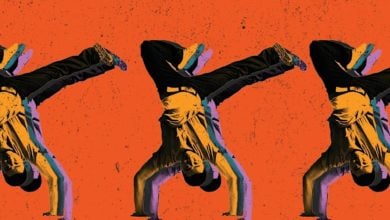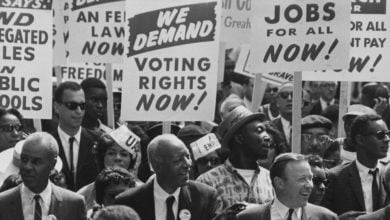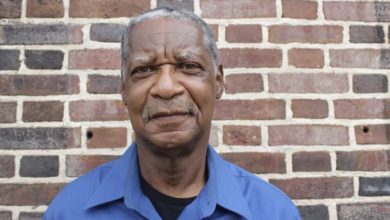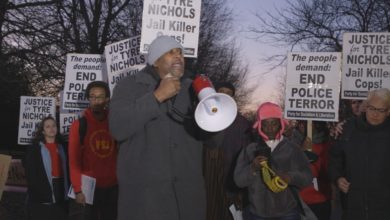The struggle for Mumia Abu-Jamal’s freedom continues as Pennsylvania Common Court of Appeals Judge Lucretia Clemons has delayed a final decision on a crucial appeal. The Dec. 16 hearing was intended to provide a last say on whether or not Mumia’s Post Conviction Relief Application would be accepted in light of newly-discovered evidence that his conviction was based on purchased testimony of key witnesses in the case and a prejudiced jury pool that was narrowed down based on race. This new evidence was brought to light in 2018 with the discovery of six boxes of evidence following Larry Krasner’s election to the DA’s office.
The courtroom on Friday was packed with a crowd consisting mostly of Mumia’s supporters with many more waiting outside and rallying in the streets. Supporters traveled from all over the country — including Oakland, Detroit, and New York — to show their solidarity with Mumia and his struggle for freedom against the criminal “justice” system, a system that is meant to control those who are perceived to be a threat to the capitalist, white supremacist order in society.
The racism and corruption of Mumia’s trial
In 2018, six evidence boxes related to Mumia’s case were discovered in the Philadelphia District Attorney’s office. These boxes contained a key piece of evidence that offers proof that the prosecution for Mumia’s original court hearing bribed a key witness, Robert Chobert, to claim he directly witnessed Mumia shoot and kill Officer Daniel Faulkner. Specifically, the evidence found was a letter from Chobert to the prosecutor Joseph McGill, asking him when he would get the money he was promised.
Further evidence was found that the prosecution was implicated in efforts to offer leniency to another key witness to the case, Cynthia White, who at the time of the trial had five criminal cases pending. Attempts were made to prevent her from being prosecuted in exchange for her testifying that she also witnessed Mumia shoot Faulkner.
The dubious testimonies of Chobert and White are even further evidence of Mumia’s innocence. This displays the lengths to which authorities were, and are, willing to go in order to deny Mumia freedom.
Notes made by McGill during the trial’s jury selection were also found in the evidence boxes. In these notes, there are instances in which a large letter “B” was noted next to any juror who was Black. In the prosecution’s use of peremptory strikes (which they can use to prevent someone from being on a jury with no explanation), they utilized 11 out of their 15 peremptory strikes to remove Black people, ultimately preventing 71% of potential Black jurors from being in the final jury pool. The case Batson vs. Kentucky prohibits the removal of individuals from consideration on a jury due to their race, stipulating that anyone’s removal must be “race neutral.”
It is no surprise that anti-Black racism would come to play a large role in how the jury was selected given the now well-known practices of the DA’s office during this time. In an infamous 1986 training video later made public, Jack McMahon, an Assistant District Attorney, described the process of selecting a jury that would be inclined to convict. He was recorded saying: “Let’s face it, the Blacks from the low-income area are less likely to convict. There’s a resentment to law enforcement …” and “In my experience, Black women, young Black women, are very bad.” In this video, McMahon provided instructions to prosecutors-in-training on how to get away with striking Black people from consideration in a jury pool.
Philadelphia police and prosecutors have a longstanding history of using illegal methods to convict innocent people. In 2016, three former homicide detectives were charged with perjury during the retrial of an innocent man convicted of rape and murder in 1993. Police and prosecutors have also leveraged mentally ill people facing other criminal charges to testify against innocent people. For example, PPD used a serial informant to testify against defendants in six murder cases. The informant later recanted, citing police pressure as his reason for initially testifying.
Free Mumia!
This appeal, if accepted, would allow for a retrial, giving Mumia’s lawyers a chance to make an argument based on the information related to his case that has emerged over the decades. As more political prisoners get released — like Mutulu Shakur, who came home on the same day of the hearing — this fight is all the more important.
Mumia is one of many political prisoners in the United States, having served over 40 years in prison. He is a former member of the Black Panther Party, and he was one of the few journalists to fairly cover the police persecution of the MOVE organization. He is a prolific journalist and a symbol of Black liberation all around the globe. You can find art of, streets named after, and recognition of Mumia all around the world, from Philadelphia to Paris to Palestine. His supporters worldwide remain determined to fight for his freedom.






